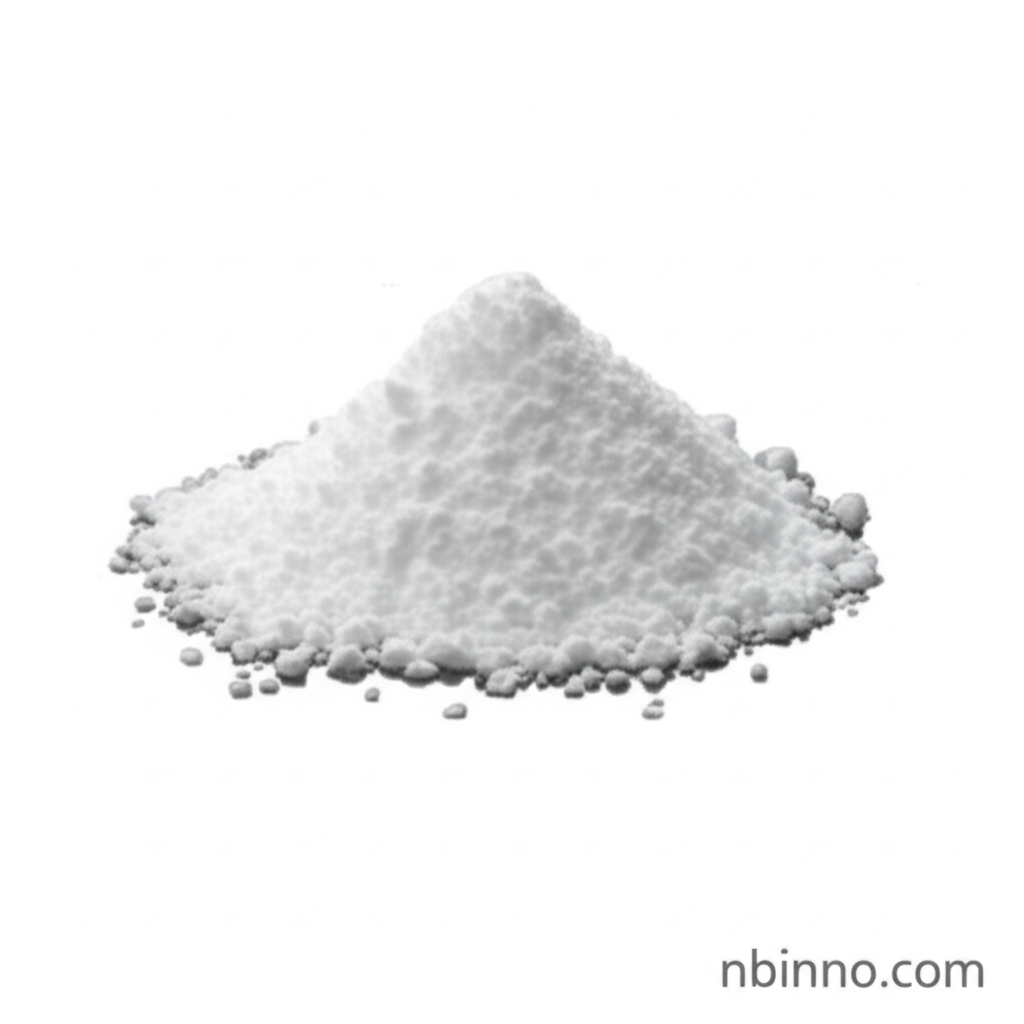Chloroacetic Anhydride: A Key Reagent in Chemical Synthesis
Discover the versatile applications of Chloroacetic Anhydride in acetylation reactions and material science.
Get a Quote & SampleProduct Core Value

Chloroacetic Anhydride
Chloroacetic Anhydride is a crucial chemical intermediate valued for its role in facilitating N-acetylation reactions, particularly with amino acids in alkaline solutions. It also serves as a key component in the preparation of cellulose chloroacetates, contributing to the development of advanced materials. Its high assay ensures reliable performance in various chemical processes.
- The n-acetylation of amino acids is a fundamental process where Chloroacetic Anhydride plays a vital role.
- Discover the efficient preparation of cellulose chloroacetates using this versatile chemical intermediate.
- Understand the CAS 541-88-8 designation and its significance in chemical sourcing.
- Explore the synthesis pathways for Chloroacetic Anhydride to ensure a stable supply chain.
Advantages of Using Chloroacetic Anhydride
High Purity and Assay
With an assay of 96% or higher, Chloroacetic Anhydride ensures consistent and predictable results in your chemical synthesis applications, contributing to the overall quality of your end products.
Versatile Reactivity
Its ability to perform N-acetylation reactions makes it an indispensable tool for modifying amino acids and other organic compounds, supporting a wide range of chemical synthesis projects.
Material Science Applications
The preparation of cellulose chloroacetates highlights its utility in developing new materials with specific properties, opening avenues for innovation in polymer science.
Key Applications
Amino Acid Acetylation
Facilitates the N-acetylation of amino acids in alkaline solutions, a critical step in peptide synthesis and the creation of modified amino acid derivatives.
Cellulose Derivatives
Used in the preparation of cellulose chloroacetates, which are precursors for various modified cellulosic materials with unique characteristics.
Organic Synthesis
Serves as a valuable reagent in general organic synthesis, enabling the introduction of specific functional groups and the construction of complex molecules.
Chemical Research
Essential for laboratory research and development, supporting studies in medicinal chemistry, material science, and fine chemical manufacturing.
